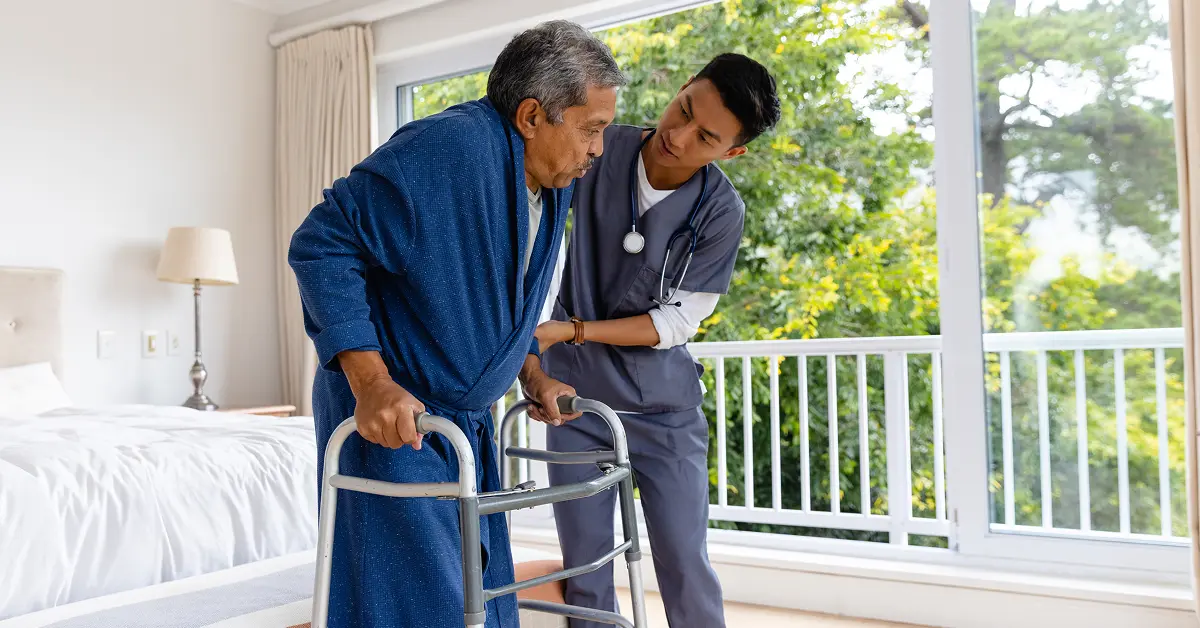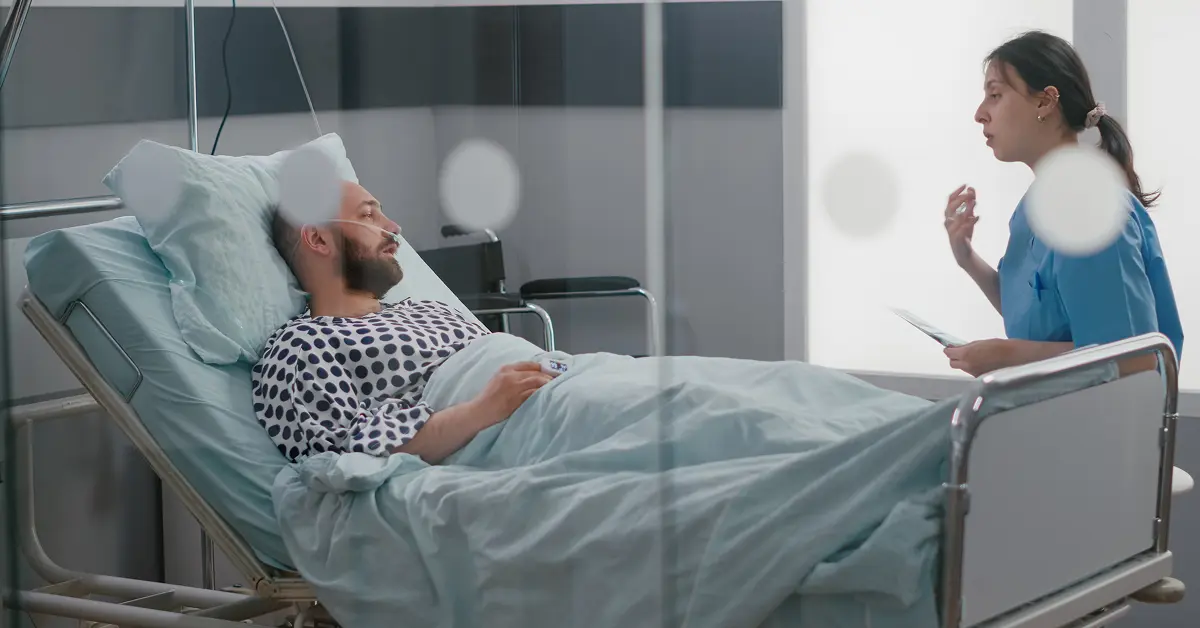Recovering from a hospital stay is not just about getting discharged. For many Patient Care the real journey to complete healing begins once they step out of the hospital doors. In India, where family members often take primary responsibility for care, Hospital Discharge support plays a vital role in ensuring smooth recovery, avoiding complications, and reducing the risk of readmission. Whether it is post-surgical care, elderly recovery, or rehabilitation after a chronic illness, professional and well-structured post-hospital care can make a world of difference.
Why Post-Hospital Discharge Care is Important
The transition from hospital to home is a vulnerable period. Patients are no longer under constant medical supervision, yet their health may still be fragile. Many face difficulties such as:
- Managing medications at the right time and dosage.
- Following prescribed diets and physical activity restrictions.
- Monitoring vital signs like blood pressure, sugar levels, or oxygen saturation.
- Preventing infections, especially after surgery.
- Handling mobility challenges due to weakness or surgical wounds.
Without proper support, patients may experience delays in healing, higher stress, and in some cases, complications that require readmission. In India, where hospitals are often crowded and readmissions increase financial burden, post-discharge care helps both patients and families feel safe and confident in the recovery journey.
Common Situations Requiring Post-Discharge Care
- Post-Surgery Care: Patients recovering from surgeries such as knee replacement, cardiac bypass, or C-sections need wound care, pain management, physiotherapy, and dietary monitoring.
- Elderly Care: Senior citizens often face multiple health issues after hospitalization. They may need assistance with mobility, medication, and regular health checks.
- Stroke and Neurological Recovery: These patients need rehabilitation, physiotherapy, speech therapy, and emotional support at home.
- Chronic Illness Management: People with diabetes, hypertension, or cancer need continued medical monitoring even after discharge.
- Post-COVID or Respiratory Illness Care: Patients may need oxygen support, breathing exercises, and monitoring of lung function.
Key Components of Post-Hospital Care
To ensure a smooth recovery, post-discharge care must be structured and personalized. Some essential components include:
Medication Management
Patients are often prescribed multiple medicines with different dosages. Missing even a single dose or taking the wrong medication can cause complications. A trained caregiver or nurse can ensure proper medication administration and keep track of schedules.
Wound and Infection Care
Surgical wounds need regular cleaning and dressing. Preventing infections is crucial, as they can delay recovery and even become life-threatening. Professional caregivers are trained to maintain hygiene and manage dressings safely.
Physiotherapy and Mobility Support
After hospitalization, many patients face muscle weakness or limited mobility. Physiotherapists help improve strength, flexibility, and balance. Caregivers also assist with walking, climbing stairs, or using mobility aids.
Nutrition and Diet Management
Recovery often depends on a balanced diet tailored to the patient’s condition. For example, post-cardiac patients require low-cholesterol meals, while post-surgical patients need high-protein diets for faster healing. Nutritionists or caregivers ensure patients follow the right meal plan.
Monitoring Vital Signs
Keeping track of vital signs such as blood pressure, blood sugar, heart rate, or oxygen levels is critical. Early detection of abnormalities can prevent complications and avoid emergency hospital visits.
Emotional and Mental Support
Many patients feel anxious, depressed, or stressed after hospitalization. Caregivers not only provide companionship but also ensure patients feel supported emotionally, boosting overall recovery.
Doctor Follow-Ups and Coordination
Post-discharge care also involves regular follow-ups with doctors. Professional caregivers can coordinate appointments, maintain health records, and update doctors about the patient’s progress.
Benefits of Professional Post-Discharge Care
While families in India traditionally take care of patients at home, modern lifestyles, nuclear families, and medical complexities make professional care essential. The benefits include:
- Reduced Readmissions: Proper monitoring reduces the chances of returning to the hospital.
- Faster Recovery: Expert care helps patients regain health quicker.
- Lower Family Stress: Families get peace of mind knowing professionals are handling critical aspects of care.
- Personalized Support: Every patient receives a customized care plan suited to their needs.
- Cost-Effective: Avoiding repeat hospitalizations saves money in the long run.
Role of Home Nursing Services in India
Home nursing is one of the most effective forms of post-hospital care. Trained nurses provide professional medical attention right at home. Services may include:
- IV medication administration
- Catheter and tracheostomy care
- Post-surgical dressing
- Pain management
- Rehabilitation support
With growing awareness, many Indian families are opting for home nursing, especially in metro cities like Delhi, Mumbai, Bangalore, and Hyderabad, where trusted healthcare agencies provide reliable and affordable care.
How Families Can Prepare for Smooth Recovery at Home
- Understand Discharge Instructions: Carefully note down doctor’s instructions regarding medicines, diet, activities, and warning signs.
- Arrange a Safe Home Environment: Keep the home clutter-free, ensure good lighting, and arrange mobility aids like wheelchairs if needed.
- Hire Professional Support if Needed: If care needs are complex, engage a nurse, physiotherapist, or caregiver.
- Maintain a Recovery Journal: Track medication timings, diet, physiotherapy sessions, and health progress.
- Stay Connected with Doctors: Schedule timely follow-ups and never ignore unusual symptoms.
The Future of Post-Hospital Care in India
With India’s healthcare system evolving rapidly, post-discharge care is becoming more structured and professional. Telemedicine, remote monitoring devices, and trained home caregivers are transforming the way patients recover at home. The demand for such services will continue to grow as more families realize the importance of comprehensive recovery support.
Conclusion
Post-hospital discharge care is not just about physical healing—it is about holistic recovery. From proper medication and diet management to emotional support and medical supervision, every step matters. In India, where family values are deeply rooted, combining family care with professional post-discharge services ensures the best of both worlds.
By planning ahead, involving trained caregivers, and staying consistent with medical advice, patients can enjoy a smooth recovery, reduce the risk of complications, and regain their independence faster.
Smooth recovery is possible when care continues beyond the hospital. With the right support, healing becomes not just a journey—but a success story.
Contents
- Why Post-Hospital Discharge Care is Important
- Common Situations Requiring Post-Discharge Care
- Key Components of Post-Hospital Care
- Benefits of Professional Post-Discharge Care
- Role of Home Nursing Services in India
- How Families Can Prepare for Smooth Recovery at Home
- The Future of Post-Hospital Care in India
- Conclusion
Our 24*7 services
Latest Posts
- What Is Respite Care and Why Is It Important
- Affordable home care for senior citizens in India
- Caring for Seniors with Dementia or Alzheimer's at Home
- Senior Caregiving A Guide for Every Family
- How to Write a Caregiver Resume That Gets You Hired
- How Care After Hospital Discharge Speeds Up Recovery at Home
- How to Get Home Health Care for Seniors Through Medicare
- What Does a Senior Citizen Caregiver Really Do at Home
- How to Care for Elderly Parents with Alzheimer’s or Dementia
- How to Get 24-Hour Care for Seniors at Home



